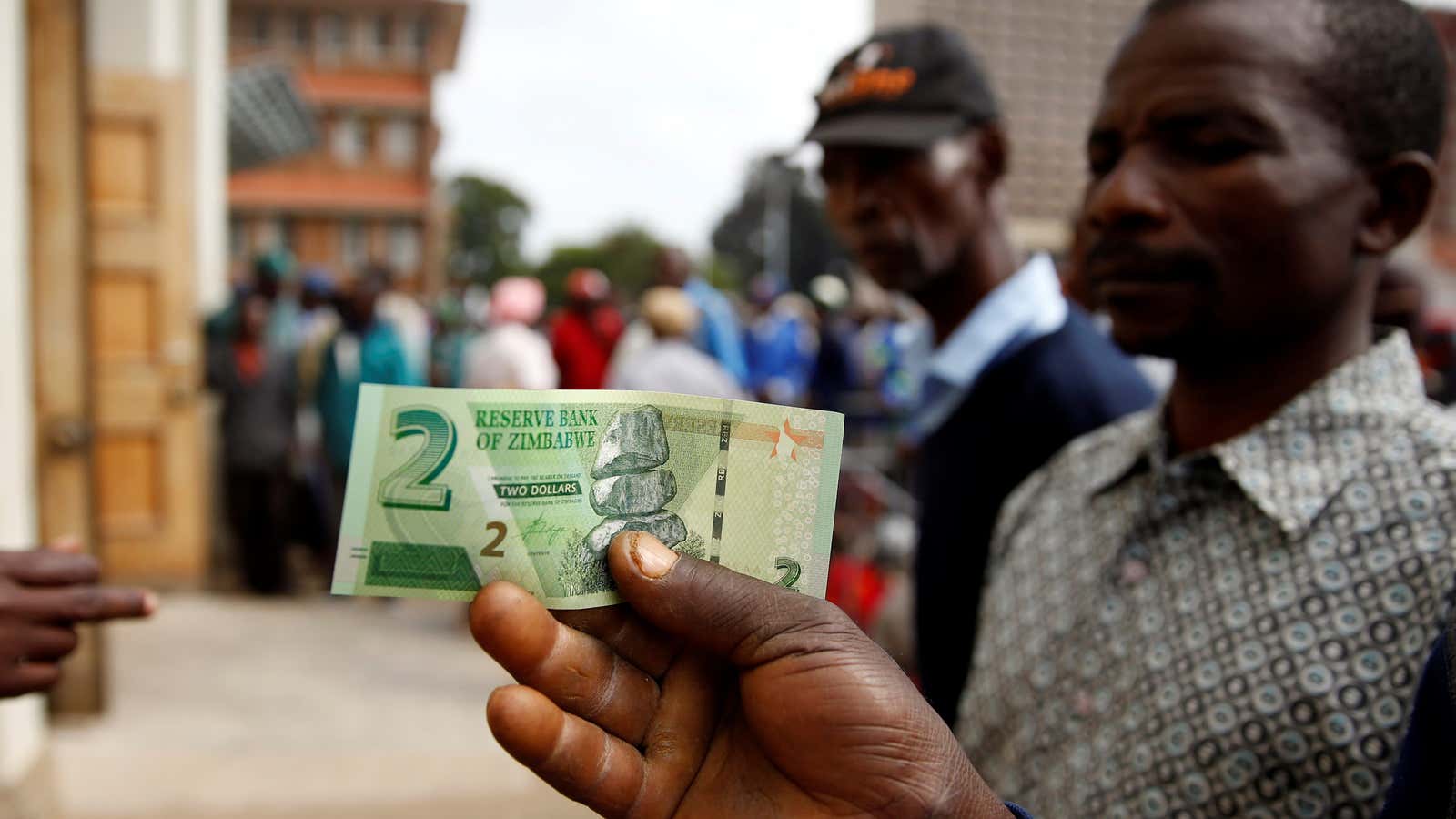Once touted by Zimbabwean authorities as the effective solution to the country’s cash problems, mobile money is now being blamed for the rapid loss in value of the country’s Zimdollar currency. The central bank has described the leading EcoCash platform as a Ponzi scheme in court papers seeking to sustain a directive to disable its agent lines.
Zimbabwe continues to battle a severe financial crisis that has only worsened through the Covid-19 pandemic. Mobile money had helped boost financial inclusion in Zimbabwe as banks—which have been closing branches—fail to meet depositors’ demands for cash withdrawals. Mobile money usage in Zimbabwe has moved from just basic digital payments and rapidly evolved to include salary payments and remittances among other use cases.
But regulators now have a different position as they allege EcoCash, with over 11 million registered mobile wallet users, has been fueling illegal currency dealings on the streets. The Zimdollar unit is currently trading at $1 to 45 Zimdollars on the streets of Harare against the official and fixed exchange rate of $1:25 and authorities are looking to stem this by curtailing the agent lines accused of involvement in black market currency dealings.
The Reserve Bank of Zimbabwe believes EcoCash is causing the spike in the parallel market exchange rate after issuing a May 4 directive for EcoCash and its smaller state owned competitor, One Money to disconnect SME agent lines transacting up to $2000 a month in local currency. It called for the re-application and re-registration of the agent lines. Worse still, the central bank will have to oversee this re-registration process.
EcoCash, run by the country’s Econet Wireless group, has complied with the directive, disabling the affected agent lines but has now also dragged the central bank to court, applying for an urgent interdict of the directive on May 6, and calling for the setting aside of the freeze on agent lines. The platform has also had to explain to subscribers that this had impacted on crucial cash in/cash out as well as airtime sales functionalities as “agents will not have access to their float funds”.
Yet central banking authorities are digging in, filing responding papers to the Econet interdict application on May 8 where the governor, John Mangudya, described EcoCash as a Ponzi scheme under which the platform was essentially running overdrafts for the agent lines. Other economists such as Vince Musewe, who is chairman of ReInvent Zimbabwe, say when “EcoCash gives overdraft to agents it is in fact printing electronic money and acting as a pseudo bank” operation.
Sign up to the Quartz Africa Weekly Brief here for news and analysis on African business, tech and innovation in your inbox
